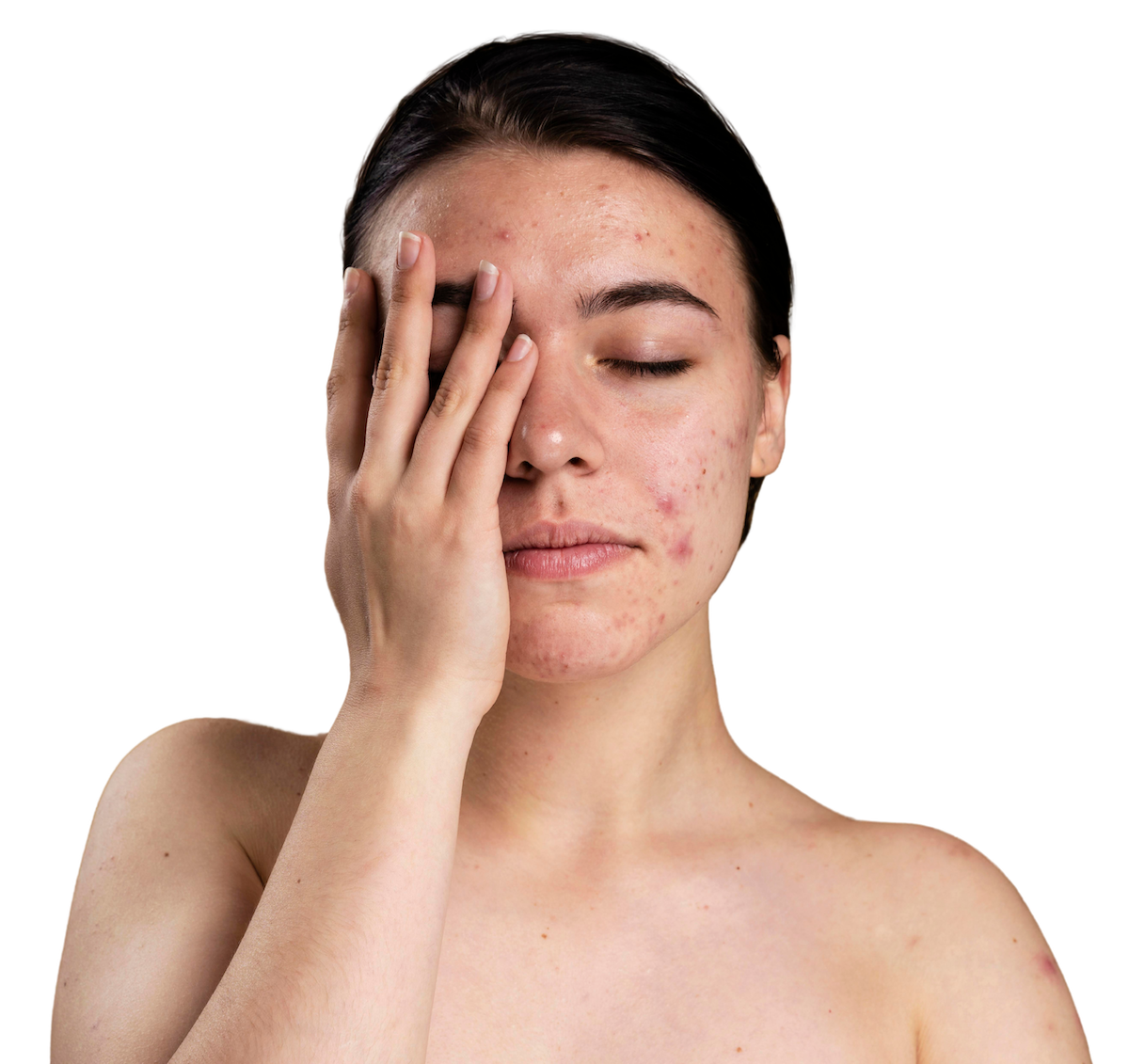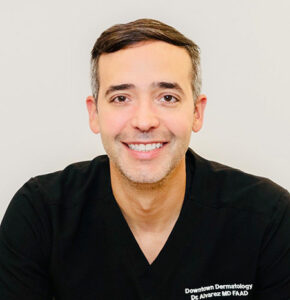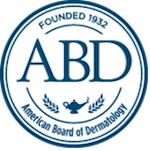Frequently Asked Questions
How is acne treated?
Treatment starts with a personalized evaluation. Your dermatologist will assess the type and severity of acne and consider factors like pregnancy, allergies, or other health conditions.
- Topical treatments: Retinoids, salicylic acid, benzoyl peroxide, azelaic acid, and topical antibiotics are commonly used for mild to moderate acne.
- Oral/systemic therapies: For more severe cases, options may include oral antibiotics, hormonal treatments (e.g., birth control for women), or isotretinoin (with strict protocols for pregnancy).
- Combination therapy is often most effective, applying multiple approaches simultaneously.
-
How long will treatment take to show results?
Acne treatments typically require 4 to 8 weeks to begin showing visible improvement. Continued use is essential—even after the skin clears—to maintain results. Red or brown marks post-breakout are common and can gradually fade over several months.
How can I prevent scarring and future breakouts?
Avoid touching, picking, or popping acne, as this can worsen inflammation and increase scarring risk. Use lukewarm water and gentle cleansing—scrubbing can aggravate acne. Sun exposure should also be minimized, and non-comedogenic sunscreen is recommended.
When should I see a dermatologist instead of relying on OTC products?
If acne is deep (like cysts), widespread, not responding to over-the-counter treatments, or affecting your emotional well-being, it’s time to seek help from a dermatologist. They can provide effective prescriptions and perform in‑office procedures to clear resistant lesions.
Why is professional guidance important rather than treatment on my own?
Dermatologists tailor treatment plans to your specific skin type and acne severity. Professional guidance ensures selected therapies are effective and safe—especially important for deeper, more complicated acne forms and to prevent long-term damage.


















